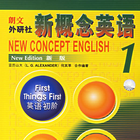
NCE1-L141L142
介绍: NCE1-Lesson 141 & Lesson 142
Part I New words and expressions 生词和短语
Lesson 141 Lesson 142
1 excited [ik'saitid] a.兴奋的
2 get on 登上
3 middle-aged ['midl'eidʒid] a.中年的
4 opposite ['ɔpəzit] prep.在…对面
5 curiously ['kjuəriəsli] ad.好奇地
6 funny ['fʌni] a.可笑的,滑稽的
7 powder ['paudə] n.香...
介绍: NCE1-Lesson 141 & Lesson 142
Part I New words and expressions 生词和短语
Lesson 141 Lesson 142
1 excited [ik'saitid] a.兴奋的
2 get on 登上
3 middle-aged ['midl'eidʒid] a.中年的
4 opposite ['ɔpəzit] prep.在…对面
5 curiously ['kjuəriəsli] ad.好奇地
6 funny ['fʌni] a.可笑的,滑稽的
7 powder ['paudə] n.香粉
8 compact ['kɔmpækt] n.带镜的化妆盒9 kindly ['kaindli] ad.和蔼地
10 ugly ['ʌgli] a.丑陋的
11 amused [ə'mju:zd] a.有趣的
12 smile [smail] v.微笑
13 embarrassed [im'bærəst] a.尴尬的,窘迫的 1 worried ['wʌrid] a.担心,担忧
2 regularly ['regjuləli] ad.经常地,定期地
1)excited adj . 兴奋的
excited adj. 兴奋的 exciting adj. 令人兴奋的 excite vt. 令人兴奋
2)oppositeprep . 在...对面
be opposite to在对面
3)kindly adv . 和蔼的
be kind to=be friendly to对……友好
4)smile v . 微笑
smiling adj.笑的 unsmiling adj.不笑的
5)worried adj . 担心,担忧
be worried about 担心某事/某人
worry v. worry about sth/sb 担心某事/某人
Part II Passage 文章
Lesson141 Sally’s first train ride
Last week, my four year old daughter, Sally, was invited to a children’s party. I decided to take her by train. Sally was very excited because she had never traveled on a train before. She sat near the window and asked questions about everything she saw. Suddenly, a middle-aged lady got on the train and sat opposite Sally.
“Hull, little girl.” She said. Sally did not answer, but looked at her curiously.
The lady was dressed in a blue coat and a large, funny hat. After the train had left the station, the lady opened her handbag and took out her powder compact(粉盒). She then began to make up her face.
“Why are you doing that?” Sally asked.
“To make myself beautiful,” the lady answered. She put away her compact and smiled kindly.
“But you are still ugly.” Sally said. Sally was amused, but I was very embarrassed!
Part III Key structures关键句型
被动语态(1)
英语动词有主动语态和被动语态之分。在主动句中,动词的主语是执行动作的人或物。在被动句中,主语是动作的承受者。在英语中被动词态用得很普遍,这样做可以避免用不明确的词作主语,或是将说话的重点放在事件而不是造成该事件的人或物上。
被动语态的构成:be + 过去分词。
过去分词不一定指过去。请看例句:
(1)一般现在时形式:am/are/is + 过去分词:
The room is aired regularly.这个房间定期通风。
The knives are sharpened regularly。刀定期磨。
(2)一般过去时形式:was/were + 过去分词:
She was dressed in red .她身穿红色衣服。
The windows were opened this morning.窗户今早是开着的/被打开了。
(3)英语中表达感情的动词通常可用于被动式,这些动词如amuse,embarrass,worry,surprise,interest,upset等:
She is embarrassed.她感到尴尬。
They were worried.他们感到担忧
更多精彩尽请关注微信fhzxyy666
